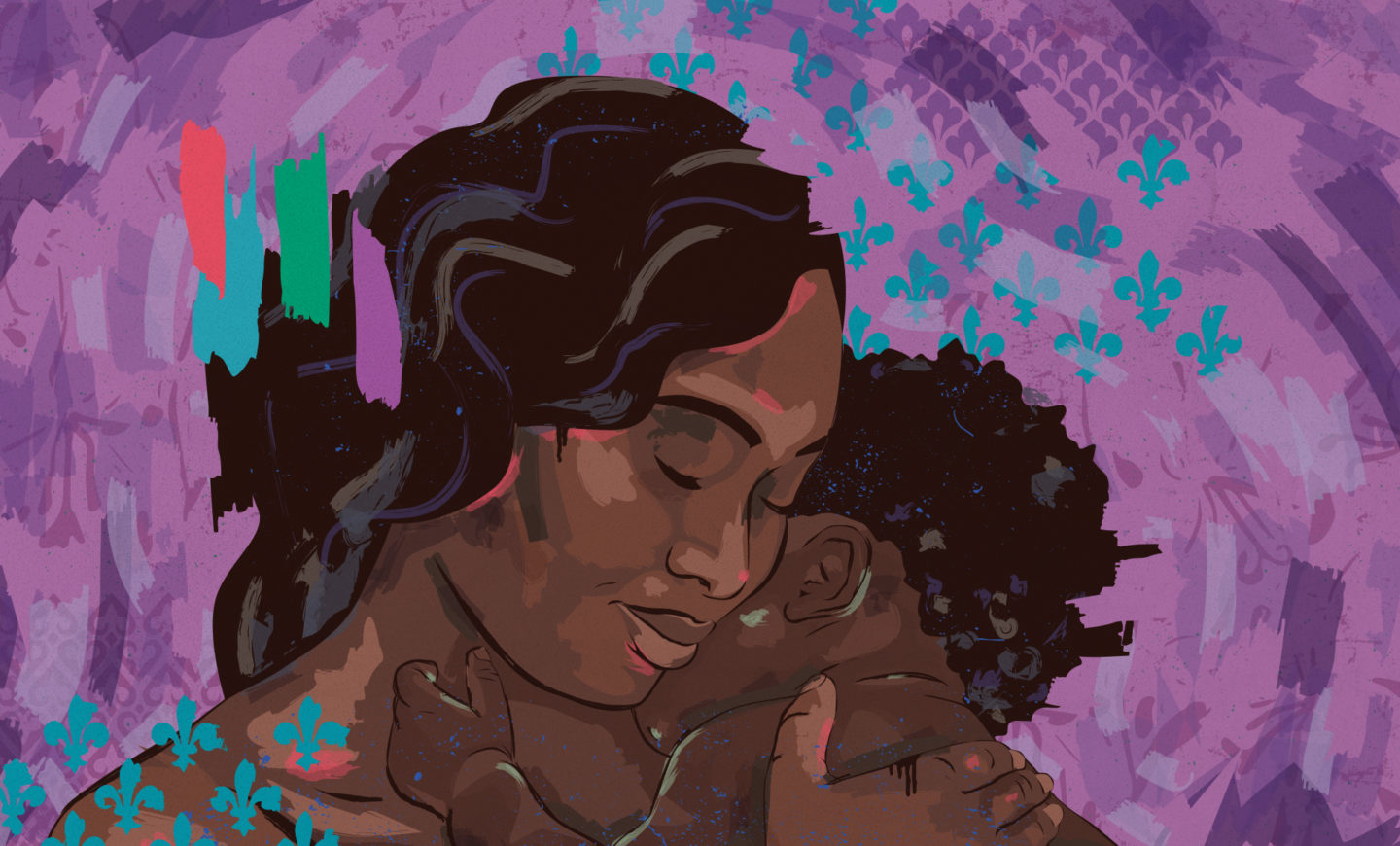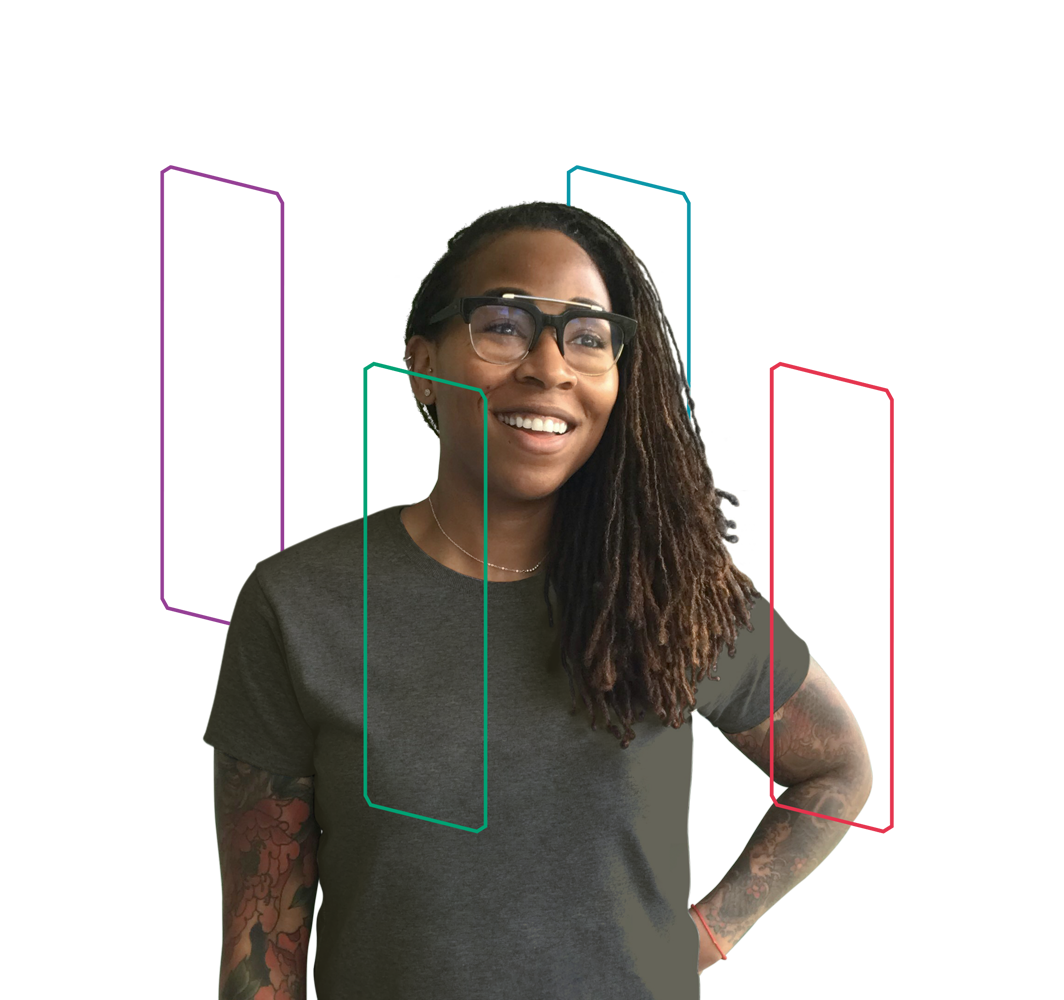“Well, since this was the year of the nurse [I know, right? (Nacole)]. It’s funny how we’re challenged this year. This is the test we never knew was coming. [For sure. This is the pop quiz of all pop quizzes. (Nacole)] I know I was like, you know, I’m telling all the new nurses, you don’t have to take your NCLEX, ‘cause this is, this is the real deal [You will learn today for sure (Nacole)]. Yeah, you goin’ to learn today.”
That’s our friend Nikki Greenaway, affectionately known by her patients and social media followers as “Nurse Nikki.” In Part 1 of our conversation with Nikki, we talked about the tension between veteran and new nurses (ahem, nurse bullying) and how to pave your own path even when the haters (ahem, the bullies) hate.
In Part 2, Nikki and Nacole zone in on Nikki’s true passion — maternal health. And you can’t talk about maternal health without talking about racial inequities, because right now in the United States, black women are two to six times more likely to die from pregnancy-related complications than white women. This trend was one that Nikki witnessed firsthand in her New Orleans community, and she desperately wanted to reverse it.
“I wanted to help women that look like me … the women that look like me are the ones that are most at risk. So I started reaching out to organizations like Healthy Start, which is a perinatal home visitation program and WIC … and proposing, ‘Hey, I’m an NP. You know, I do lactation support. How can I help you better serve women?’ And they were like, ‘Oh, we have this huge deficit over here. Like let’s set up a clinic.’ So I had a latch clinic. I did prenatal visits with them …”
But Nikki didn’t just attack the racial inequities among mothers from the clinical side — she also got into policy-making and started trying to effect broader change.
“I got involved in the pregnancy-associated maternal mortality review board. So we look at all the cases of maternal deaths within the first year of giving birth … And really there look[ing] at the health disparities … and really tap into ‘Why are [black women] having these outcomes? And what can we do to change it?’ So my business has kind of pivoted to the point of just being an activist and really going out and speaking out and trying to use my position as a nurse practitioner and International Board Certified Lactation Consultant® which I am the only black nurse practitioner IBCLC in my entire state — using that to get the message out and get policies changed and get providers held accountable for their biased behaviors.”
Because she was so deeply entrenched in her community (as opposed to only seeing patients in a hospital setting), Nikki was hyperaware of the environmental factors stacking the cards against young mothers of color that other providers might miss. Things like their housing, transportation and basic education (or lack thereof). Knowing that not all doctors take these important factors into account (and by the way, SHIFT Talkers, as many of you know, the official term here is social determinants of health), and also knowing that some providers have unconscious bias against minorities, Nikki focuses on giving her patients the ability to advocate for themselves in their appointments.
“I want to empower people, I don’t want to speak for you. I want to give you the information. So you know what you know, and you know when [something] just doesn’t feel right, and go with your gut and ask questions and know when something just doesn’t sound right or — or have the courage to leave when it just feels like an abusive situation. Your relationship with your provider should not be abusive or feel like a hierarchy.”
An incredibly important point to note is that the mamas Nikki works with didn’t just suddenly start coming up against barriers in our healthcare system with because of COVID — many of the issues that women of color face (and that the press is talking about due to the pandemic) have been on Nikki’s radar for years.
“When COVID hit, we truly [saw] the disparities. When we look at the numbers and how it’s affected African American communities and it’s blatant that, ‘Oh wait, they didn’t have as many resources as everyone else.’ Baby, it’s been a food desert forever — and a medical desert and a technology desert. You know, when you’re living in virtual poverty, those type of things, those terms come up and they’re like ‘virtual poverty, technology poverty?’ I’m like, ‘Yeah, there’s poverty to the point where you don’t even have technological devices to do those things.’”
With COVID, Nikki’s patients are now getting discharged from the hospital the day after they have their babies, which means they have even less access to the healthcare system than they did before. That has huge ramifications for a population that relies on that system to be its safety net.
“We already knew that there was a health disparity between black women and white women, but now we’re pushing folks out in less than 48 hours. So what do you think is about to happen? … We’re seeing more calls, we’re having more situations where families are feeling unsafe, and it’s one of those things where the whole protocol should have been changed ahead of time before COVID.”
With all this going on, Nikki is still doing what she’s always done — stepping in to fill the gaps. Is she putting her own health and safety at risk? Yes. Is she putting the health and safety of her family at risk? Yes. But if she doesn’t do it, who will? That’s genuinely how she feels — that’s genuinely how so many of us feel, SHIFT Talkers.
If not nurses, then who?
A true SHIFT talker, Nikki remains hopeful in the face of all these challenges. When we asked her about her vision for the future of nursing, she said she hoped COVID would bring nurses together. That the pandemic has the potential to clear nursing of its “clutter” — strip away the artificial hierarchies that pit nurses against each other and make practicing at the top of our training and education the rule, rather than the exception. Amen to that.
About the guest
Nikki Greenaway, affectionally known as “Nurse Nikki” by those who follow her on social media, has always forged her own path. Nikki was a pre-med student interning at a hospital in England when the Iraq War broke out. When the doctors left the hospital and the only healthcare providers left were nurses, Nikki had a lightbulb moment, realizing that NPs do almost all the same things doctors do, but using a holistic approach that felt more like her. After pairing her studies in sociology with a nursing degree, Nikki built a career around caring for mothers and babies struggling with homelessness and other sources of health disparity in her home city, New Orleans. A self-dubbed “street nurse,” she was a champion for reproductive and racial justice long before the pandemic. But COVID-19 has hit her community hard and upped the ante for a population that is already at-risk. Nikki is still out advocating for her patients every day, despite the risk to her and her family — “If I don’t do it, who will?” she wonders.


